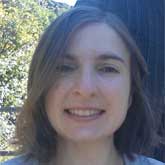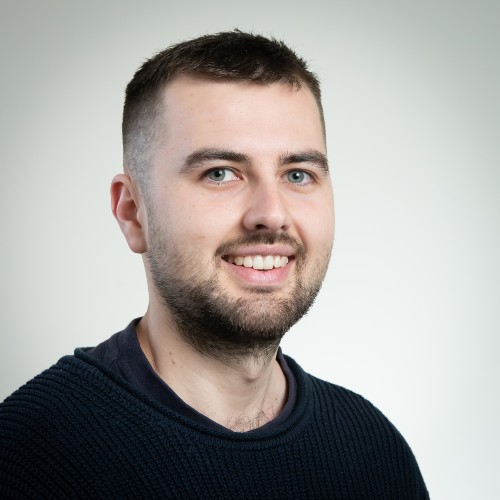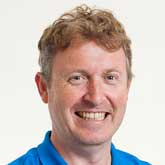
Master of Drug Discovery and Development – MDDD
Build on your science degree and get a broad knowledge of the processes involved in drug discovery, design and development.
The people you work with and learn from are an important part of your studies. Learn who the teaching staff are and hear what the programme is like.
Academic staff
DRGD 401 Chemical Biology and Drug Discovery
DRGD 402 Drug DesignDRGD 403 Drug Development- AProf Simon Hinkley—Programme Director
- Prof Richard Furneaux
- Dr Lawrence Harris
Stories

Izzie Alderton
Master of Drug Discovery and Development graduate, Senior Technician at the Institute of Environmental Science and Research Ltd (ESR)
Studying Drug Discovery at the University gave me the opportunity to network with people from industries I wanted to work in.
Having worked in industry, I felt the Master's programme would benefit me the best in terms of learning new skills to further my career but also to cater to my interests. The MDDD enabled me to combine both the biological aspects of drug discovery, which is my background, with the chemistry side—as both go hand in hand.
Valuable project work
Although it was challenging at times, it was enjoyable, and the best part was working on a project looking at drug discovery. This allowed me to combine biology and chemistry, and the practical nature of the project meant I learnt more than perhaps I would have in a class setting.
The courses are not all chemistry based, which was nice, and they gave me a wide understanding of all the components that go into discovery, design and development. They also showed me the different types of industry niches there are.
Networking opportunities
Studying Drug Discovery at the University gave me the opportunity to network with people from industries where I wanted to work in. Some parts of the MDDD are taught by people who work in industry, which makes a nice change. I made the effort to go to lots of seminars to find out about other research areas which might stimulate my interest in doing something new. The programme was great for trying lots of new things, challenging myself and meeting a range of people.
Wellington the place to be
Wellington is such a great city with lots of things to do and, when not studying, it's easy to get around everywhere. With lots of Crown research institutes and other small biotechnology businesses around you get plenty of interaction with industry people to help you get ideas and contacts for jobs.

Lukas Eyer
Master of Drug Discovery and Development graduate, Research Associate at the Ferrier Research Institute
I would say this degree is hard to beat for real-world experience and connections.
Beyond expectations
I chose the Master of Drug Discovery and Development because I wanted to apply and further my knowledge in synthetic organic chemistry while gaining some industry experience.
The programme covered everything you would expect, plus a few extra topics which were a great addition—like industrial manufacturing (scale-up chemistry) and intellectual property. As my undergraduate degree consisted of mostly science papers, these sections were a nice change of pace, and very interesting.
Cutting edge research
My research looked at molecules for bioconjugation, which allow drugs to be coupled to components of the immune system (e.g. antibodies) to be transported to their targets. These methods are part of the cutting edge of cancer treatment today and have huge benefits over traditional treatment methods. It’s been fantastic to be involved in such innovative research.
A world of opportunities
I’m currently working as a research associate at the Ferrier Research Institute. In the future I’d like to get some experience in industrial chemistry. From there, who knows—I’d like to get as much experience under my belt as possible. Chemistry is a wide field and there are so many different jobs out there.

Professor Gary Evans
The lecturers in this programme have published over 100 papers on drug development and are inventors on more than 20 US patents.
Important contribution to medicine
Driven by chemistry but increasingly guided by genomics, structural biology, and the clinical sciences, drug research has contributed more to the progress of medicine during the past century than any other scientific endeavour.
Creating better drugs
This programme provides information regarding the development of FDA approved drugs and the modern techniques used to optimise them. This includes techniques in target binding (medicinal chemistry and optimisation of the binding or engagement of small organic molecules to proteins) and target access (bioavailability, pharmacokinetics, pharmacodynamics, drug formulation).
Learn from the experts
The lecturers in this programme publish and patent their technologies. Several of their inventions, drugs, and drug technologies are currently in human clinical trials for the treatment of diseases as diverse as cancer and gout.
Previous
RequirementsNext
How to apply

